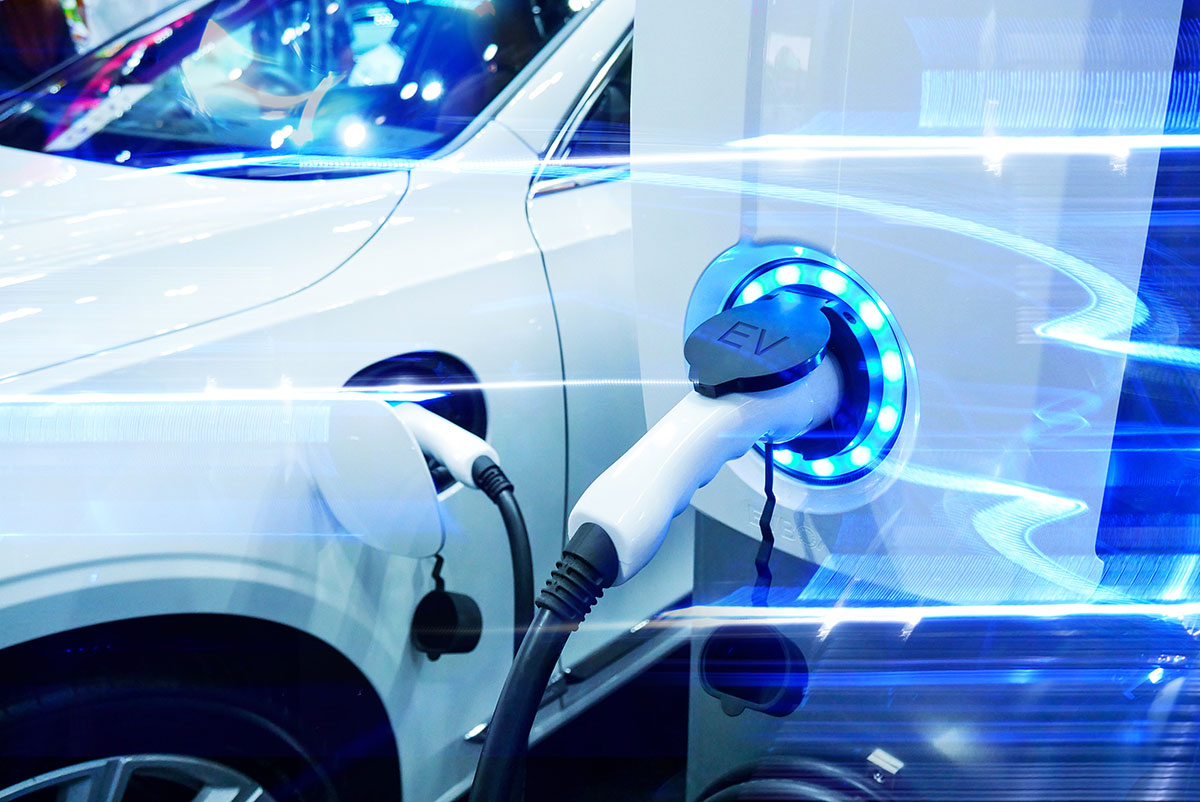Businesses and states will speed ahead to an electric future
Amy Davidsen, Executive Director for North America at The Climate Group
The electric vehicle (EV) sector is growing rapidly in the United States, with 2019 being its biggest year yet. While the current U.S. administration has attempted to undermine EV growth through regulatory rollbacks — most recently on fuel efficiency standards — leading U.S. businesses and states and local governments are pushing forward the EV shift, paving the way for a cleaner and healthier future.
The federal government is acting in opposition to what many businesses, states and local governments and original equipment manufacturers (OEMs) are demanding. Many OEMs are still pushing ahead with EVs, such as Ford, with its long-awaited Mustang-inspired all-electric Mach-E. Reports also suggest that EV infrastructure is aggressively expanding. These factors are sending a signal to U.S. businesses and local governments that EVs are here to stay.
The Climate Group’s recent EV100 Progress and Insights Report shows that a growing number of companies, including Clif Bar and Lime, want to see cleaner vehicles on the market as they commit to electrify their fleets by the end of the decade. The EV100 initiative brings together forward-thinking global companies that are committed to electrifying their fleets by 2030, helping to avoid 42 million metric tons of CO2 annually.
EV100 members have stated that the No. 1 driver for committing to 100 percent electric fleets is to reduce greenhouse gas emissions and combat climate change. In addition, 84 percent of members — including healthcare companies Genentech and AstraZeneca — cite that tackling air pollution is the second most important driver. The World Health Organization estimates that 4.6 million people die from air pollution each year, and a new study shows that COVID-19 death rates are higher in more polluted environments.
With businesses owning half of all registered vehicles on the road, their investment decisions have the greatest influence in driving the shift to EVs and improved air quality.
In the absence of federal government leadership, local and state governments are developing new policies to help businesses switch and meet their EV goals.
Recent major policies and initiatives include: California’s Medium-and Heavy-Duty Truck Mandate, requiring the electrification of trucks throughout California by 2024; New York City’s executive order to switch its entire fleet to EVs by 2040; the Pay$ to Plug rebate offered by New Jersey that incentivizes EV adoption; and New York states’s desire to issue Make-Ready Utility programs.
EV100 member Port Authority of New York and New Jersey (PANYNJ) builds, operates and maintains much of the most important transportation and trade infrastructure in the United States, including LaGuardia Airport and John F. Kennedy International Airport.
As a first major milestone towards its EV100 commitment, PANYNJ will switch 50 percent of its 1,300 light-duty vehicles to EV by 2025, with the rest to follow by 2030. Strong policies and programs can support these ambitious commitments as well as spur new ones.
Even international members that have operations in the U.S. are working to meet their EV commitments. Ingka Group has a goal of having a 100 percent zero-emission owned, leased and shared vehicle fleet by 2025, and is working with university campuses and churches in North America to set up chargers in parking facilities to power their suppliers’ delivery vehicles overnight.
EV100 members are finding that a lack of charging infrastructure is a barrier to electrification. States are realizing this and are working to quickly deploy the necessary charging stations for wide-scale EV adoption. EVgo’s announcement of its 800th fast-charging station deployment and ChargePoint’s $1 billion commitment to expanding EV charging at more than 4,000 travel plazas and fuel stops in the United States are just the start.
Installing EV infrastructure comes with economic benefits, too. While millions of Americans are suffering as a result of the plummeting economy due to COVID-19, policymakers can ensure that we build a better future by creating jobs in growth sectors (such as charging infrastructure) that also help address the climate crisis.
Automakers also must support EV production to meet the growing demand, especially coming out of COVID-19. EV100 members cite that the top barrier to electrification is the lack of vehicle models; a green recovery means investing in diverse vehicle models so members can meet their commitments. Investing in EVs is an investment in a net-zero emissions economy and long-term growth.
Furthermore, studies show that while the upfront cost of acquiring an EV may seem high, consumers save significant amounts during their ownership in refueling costs and greatly reduced maintenance costs. It offers similar price parity, if not, better prices over the course of ownership compared to an internal combustion engine vehicle.
U.S. businesses recognize the global shift towards EVs is happening, despite the lack of federal support. The growing number of EV100 commitments in the U.S. is a testament to this — global membership more than doubled in the last year, and businesses are set to switch over 340,000 vehicles to EVs. Businesses also recognize that strong policy frameworks will encourage more EV production and investments from both the government and the private sector.
We are now in the climate decade, where we must cut global emissions in half in the next 10 years to avoid runaway climate impacts. Transportation accounts for a quarter of global emissions, therefore we cannot afford to delay electrifying our fleets and capturing the opportunity to power our transport systems with clean electricity — which also will pave the way for cleaner air and improved health.
Despite the federal government’s rollbacks of common-sense measures to protect the environment and the health of its people, businesses and state and local governments will continue to speed ahead to an electric future.
- A statement from the We Mean Business coalition: We stand in solidarity with the Black community
- Race to zero: CEOs call for healthy, resilient and inclusive zero-carbon future
- Business calls on government to deliver on green policies

